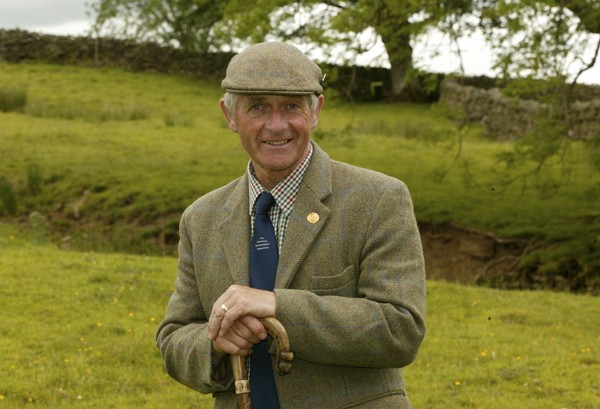Upland keeper

The weather inverted itself recently, with those of you in the South getting a taste of our winter. Of course it made headlines, as it always does when the media is inconvenienced in that part of the country. I hope you can find it in yourselves to forgive me if I don?t have any sympathy, as a glance through our meteorological data showed that we had 30 days of precipitation in December, coupled with some biting winds. Things were frozen so hard in January that we had great difficulty prising our grit boxes off the ground to replace the remaining contaminated contents when we were trying to refill them with fresh stocks of the medicated variety.
It has its advantages ? the ice was so thick on the wetter parts of the moor that you could have driven a fourwheel drive over it almost anywhere. I must stress before I am hauled into court by Natural England that we did not drive anywhere we should not have done, but what it did do was to allow us access more or less everywhere when we were gritting. Much of our moor has what could be termed very diffi cult access with wet areas as well as peat hags, and when that ground is frozen it is accessible with Argocats and similar machines. Without the frost, it is an onfoot job, which obviously takes much longer.
Making the most of snow
Just as a bonus we also had quite a covering of snow, a good few inches which blew into drifts on the higher ground. As usual we made the most of every new blanket which arrived. The snow reported the odd otter crossing from one dale to the next via streams and a badger seeking a winter bite. It is surprising how far these two species will wander every night. Not every fall of snow is beneficial, as if it continues until dawn then footprints are scarce and checking fox holes is about the only chance of getting one, unless you have a quantity of woodland where a pair may be lying on the top.
Having good neighbours, and plenty of them, is a real bonus ? few foxes ever reach us, but we have plenty of other predators to keep us busy anyway. To that end, the snow is both a help and a hindrance. Having removed our resident fox, or foxes, we seldom get any more coming in, and it is then that we turn our attention to finding and trying to deal with the stoat population. Bear in mind the ones that are left now are the clever ones ? they have seen it all and are as good an adversary as any fox; in fact, they are far harder to deal with than foxes. Home can be anywhere from a dry stone wall, hayshed, bed of rocks on the moor, crack in a peat hag, rabbit hole, or mouse and mole runs.
Stoats? tracks in the snow
Following them in the snow is a real eye-opener regarding the distance they will travel during the course of one night. More than once I have covered a straight mile as they headed home. As it happened a couple of those were in an old vole nest, using the fur from the previous tenant as insulation in their bed. I noted on the BBC one evening that one of the stoat?s cousins in the far north of the world does exactly the same thing as their own body is not too well insulated.
The real problem we have in the cold conditions is that everything freezes up, especially if we get freezing rain. Every single trap is set solid, so hard that they are not easy to remove from the ground, never mind reset them. Even if something stands on the plate and it drops, there is no guarantee that the traps will spring. The jaws stuck fast to the ground sometimes won?t move. Even trying to place the trap on a dry surface is only good for a short time until whatever you have placed underneath gets wet. Then it is back to the drawing board. And all the time your adversaries are picking off grouse or partridge which are far easier to kill once they have paired. Fewer pairs of eyes to watch in the hours of darkness mean they are more vulnerable. Our partridges have more or less all paired up, rather early I thought, given the cold wintry weather. Not only the stoat will find them easier prey, but the buzzard and the sparrowhawk will also grab them without the covey as a unit to act as a guard.
They remain one of my favourite birds, however, and it is such a shame they have become so scarce in some parts of the country.
I cannot end my piece this week without sending my condolences to the family of John Humphreys who gave so much pleasure to so many with his skill as a writer. You were transported when you read one of John?s pieces. I wish him well on his heavenly foreshore.








